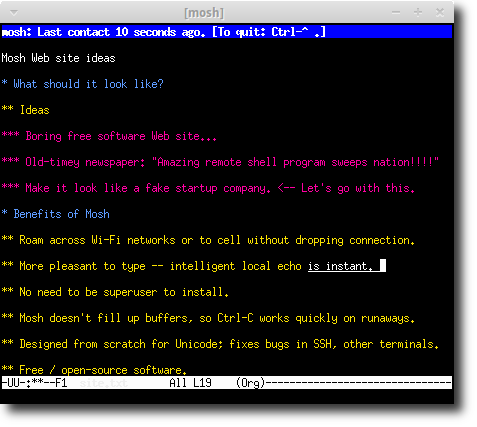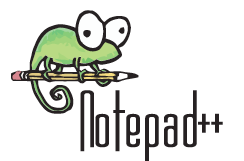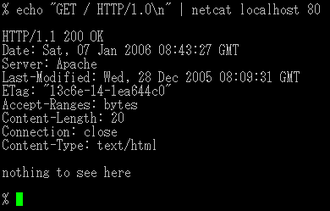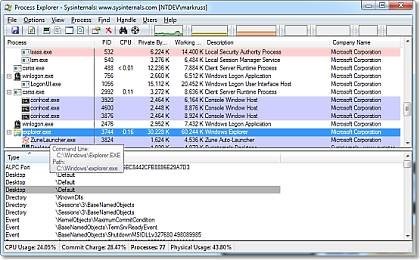Twenty-one free tools every system administrator should know about
Sometimes the presence of a single necessary tool can save you more than one hour and save you from unnecessary monotonous work. We have compiled a list of the best universal tools that help system administrators diagnose and fix problems, test and correctly configure the system for work, and also effectively exchange information.
Wireshark

Wireshark is the most popular network protocol analyzer in the world. This tool allows you to keep track of everything that happens in your network, down to the smallest details. The use of this tool is an unofficial standard in many industries and educational institutions.
Wireshark is a cross-platform tool and supports work in operating systems such as OS X, Windows and Unix.
Filezilla

https://filezilla-project.org/
Filezilla is an FTP server and FTP client licensed under the GNU GPL. With the ability to connect to secure SSH nodes, this tool becomes an ideal choice when you need to provide access to clients who prefer graphical interfaces to CLI interfaces.
Feeddler
http://www.telerik.com/fiddler
Fiddler is a local area network proxy server that allows developers to debug web applications. If there are several different applications or processes that can affect the values in a form, being able to see the actual output during transmission can be very useful and convenient.
When working with a remote API, you can compose requests and replay them if necessary.

Sysinternals suite

http://technet.microsoft.com/en-us/sysinternals/bb545021.aspx
Sysinternals Suite provides system administrators with a whole set of universal tools for working with files and disks, network maintenance, process and security management, as well as for collecting system information on Windows nodes.
One of the most popular and convenient utilities in this set is Autoruns.exe, with which you can perform the detection of all programs that are launched automatically at system startup.
Mosh
SSH users often have to experience remote session instability. Only one failure in connecting to Wi-Fi is not more than a second - and all the work down the drain. Mosh provides a secure replacement protocol that resumes interrupted sessions and improves overall performance. Mosh is compatible with almost any platform and is also available as a Chrome plugin, which makes it even more mobile.

Autossh
http://www.harding.motd.ca/autossh/
Autossh supports restarting interrupted SSH sessions and tunnels. However, it is more intended for SSH tunnels than for interactive sessions.
If you need a perpetual session, you can use a screen session.
Clonezilla

When administering or allocating a large number of computers, it is much more convenient to create one master image for distribution to all target computers. This is exactly what Clonezilla’s open source software allows.
The Clonezilla SE multicast feature allows you to simultaneously perform a batch update for a large number of computers.
Clusto

https://github.com/clusto/clusto
Clusto is a Python-based server management tool with which you can create a simplified interface for interacting with the infrastructure.
Clusto allows you to store information in any database, the interaction with which is carried out by means of SQLAlchemy. This greatly simplifies management tasks, since you do not need any special tools and functions to get started.
Ansible

Ansible is positioned as the simplest automation tool for the preparation of IT infrastructure.
Ansible Playbooks script collections provide a programmatic method for creating batch instructions. Such instructions can later be easily reproduced on any number of servers that are connected via SSH.
Chef

Chef provides server infrastructure automation by installing Chef clients on every node in the network. These clients regularly collect data from the central Chef server and check the internal configuration for compliance with the reference one. Detected discrepancies in configurations are eliminated by executing the appropriate commands.
Such regular compliance checks allow you to quickly undo all changes made manually by the system administrator.
Puppet

Puppet provides declarative server configuration using DSL written in Ruby. Those familiar with Ruby can easily use all the features of Puppet to manage servers, regardless of their number.
For a more detailed study of Puppet, a pre-configured virtual machine is offered, where you can practice and try your hand.
Dnsmasq

http://www.thekelleys.org.uk/dnsmasq/doc.html
Dnsmasq is a DNS converter for local area networks, much simpler and easier than BIND and other “heavy” servers. This tool is ideal for working in environments with low resource consumption (such as routers and firewalls).
Query caching is performed locally with it, but queries are returned to the DNS provider in the outgoing stream.
Bugzilla

Initially, this tool was used for reporting and error handling in software. However, to date, the capabilities of Bugzilla have expanded significantly, and now this tool provides quality management functions, as well as sending and checking patches.
Bugzilla integrates with a huge number of source control systems. This allows you to configure two-way communication to eliminate errors by confirming code changes, etc.
Sysdig

Sysdig is an open system level management tool. With it, you can receive, filter and save various processes that are active at any given point on a computer running Linux.
Sysdig performs a number of common tasks, such as tracking the opening of files in a directory in real time.
You can use Lua scripts to measure and extend key Sysdig functions.
TreeSize

http://www.jam-software.com/treesize_free/
Treesize is a tool for viewing the NTFS file system, which allows you to visualize the consumption of space in a view that looks like Windows Explorer.
Treesize frees up the main file table on the target computer, allowing you to quickly read the results without obtaining permissions to read the contents.
7-zip

An open source utility for compressing raw data in Windows. 7-zip quickly processes ZIP archives regardless of their size and creates self-extracting archives in 7z format.
Notepad ++

http://notepad-plus-plus.org/download/
An extremely convenient open source text editor for Windows with support for regular expressions, syntax highlighting and tab-based interfaces.
If you often have to switch from one computer to another, try Notepad ++ Portable. This version can be run from USB media or from a shared folder.
Keepass

This open source password management tool allows you to generate secure random passwords for each site or application. KeePass secure storage provides secure password storage. You do not have to memorize and moreover record hundreds of combinations with a length of more than 20 characters.
To allow other users to access the password file or make it accessible from multiple locations, you can save it to the DataAnywhere cloud storage.
Netcat
http://netcat.sourceforge.net/
This tool is often called the Swiss knife among the network utilities. Netcat provides many useful functions for sending and receiving data on network ports.
Example. Suppose you require a one-time web server on port 8080.
{ echo -ne "HTTP/1.0 200 OK\r\nContent-Length: $(wc -c <some.file)\r\n\r\n"; cat some.file; } | nc -l 8080 
Process explorer
http://technet.microsoft.com/en-us/sysinternals/bb896653.aspx
Track, identify, start, and stop processes that are managed on a Windows PC. In addition, this tool allows you to track memory leaks and identify unauthorized processes.

ADModify.NET
https://blogs.technet.microsoft.com/exchange/2004/08/04/admodify-net-is-here/
ADModify.NET is used primarily by Exchange and Active Directory administrators to bulk change user attributes.
')
Source: https://habr.com/ru/post/306976/
All Articles
